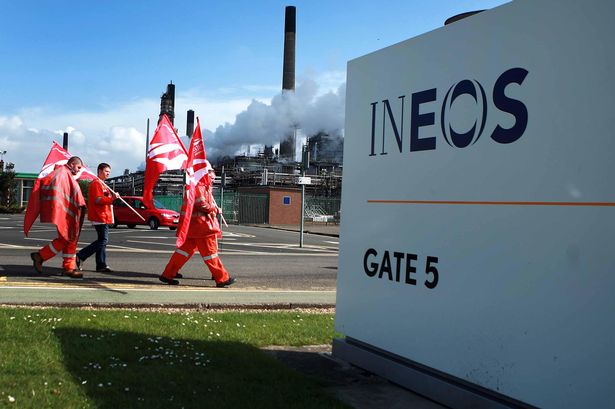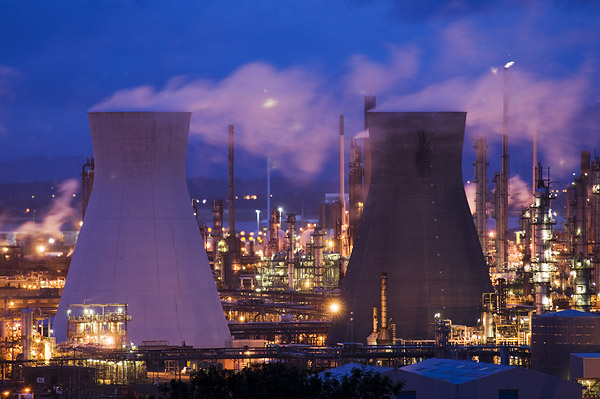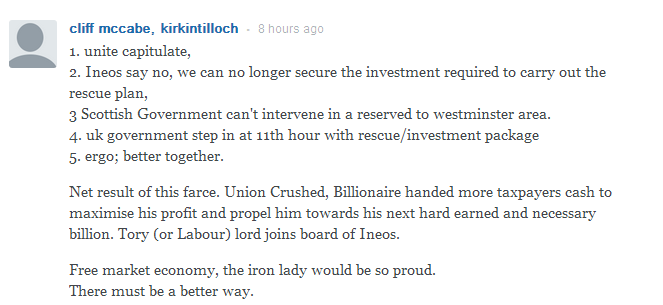I admire people who have the courage to stand up for their convictions.
However, I’m struggling to believe that chairman Stephen Deans, and secretary Pat Rafferty, of Unite Scotland, a union that represents hundreds of our workers, had clear motives when they encouraged the union to instigate industrial action against Ineos, the largest privately owned company in the UK.
The proposition was neither unfair or against laws, but was simply bringing the workforce into line with the rest of the country. There has been a long history of the unions successfully fighting for whats right and winning, but in this day and age I’m sad to say that the corporations are king.
The decision to strike was done without a thought of what the consequences would be for the rest of the country, which to be honest are pretty dire. We are not just talking about employees of the plant losing jobs, but this affects surrounding businesses and towns.
If a resolution to this is not found we can forget the cries for Scottish independence and look forward to wandering aimlessly through the many ghost towns that are likely to exist as a direct result of your actions.
Thanks,
The Skint Scot
Overview of the crisis
To contextualise the problem: there are 1,370 people employed directly by Grangemouth’s petro-chemical plant, but an estimated 12,000 contractors and subcontractors are either employed or rely directly on the site. The plant represents an estimated 8 per cent of Scotland’s manufacturing industry and the refinery delivers 12.6 per cent of all the UK’s total oil.
Historically the plant used by-products from the oil refinery across the road, which received its oil from North Sea platforms. This oil had less ethane content, meaning that the plant had been operating at reduced capacity and losing £10 million per month. Ineos plans to import shale gas “feedstock” from the US at reduced prices and use the turnover to re-equip the plant. They estimate that it needs a £300 million investment to become competitive again.
In order to save the Grangemouth petro-chemical plant, owners said it requires a “Survival Plan” consisting of government loan guarantees and big cuts in costs i.e. the pay and pensions of refinery and petro-chemical workers, who number 1,370. Without these cuts, it said, the plant could close by 2017.
And here is why I think Unite Scotland made a mistake:
- In the summer, Stephen Deans was suspended for campaigning, against company policy, to recruit Unite members to the Labour Party. At the same time, the Labour Party suspected something was up, and began an investigation into electoral rigging for the selection of a Labour candidate for the Falkirk seat at Westminster.
- 17 days ago, Unite Scotland launched industrial action over what it said was Deans’s victimisation by Ineos.
- The union then gave a 48-hour strike notice, whereupon management shut down the plant. Unite and management were in talks last week, which broke down, but the union withdrew the strike threat.
- Ineos quickly tried to get their employees to sign the revised contracts, while Unite Scotland told them not to. Two-thirds of the Unite members (half of the total workforce), refused to sign.
- Ineos ‘met fire with fire’ and announced plans to close the plant ahead of schedule. Liquidators were called in. Jim Ratcliffe, the chief executive of Ineos and owner of the Grangemouth plant, warned that if the plant is liquidated the refinery may meet the same fate as well.
In a time when unions should be co-operating with management in the interest of saving jobs, not risking them, the result is that they’ve not only been crushed but its members are left unemployed just before Christmas. This comment in the Herald sums it up pretty well:



